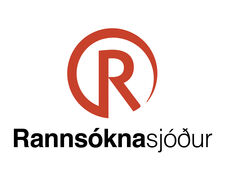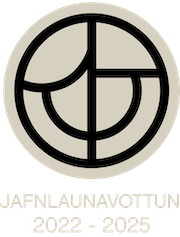Breyting í efnaskiptaferlum við fjölgun og beinsérhæfingu mesenchymal stofnfruma: Leit að nýjum kennimörkum fyrir beinsérhæfingu - verkefni lokið
Fréttatilkynning verkefnisstjóra
Á undanförnum árum hafa sviðin endurnýjunar- og tilfærslulækningar vakið sífellt meiri áhuga vegna möguleikanna sem í þeim felast er varða nýjungar í læknavísindum. Innan þeirra má finna ýmis tól sem talin eru vera lykilatriði þegar kemur að því að finna og þróa ný meðferðarúrræði, og er eitt þessara tóla notkun mesenkýmal stofnfrumna (MSF).
MSF hafa verið rannsakaðar m.t.t. ýmissa þátta þ.á.m. getu þeirra til að bæta endurnýjun beina og endurbyggingu beinvefs. Þrátt fyrir margvíslegar rannsóknir og meðfylgjandi framfarir í áttina að mögulegri klínískri notkun er margt sem er enn óljóst er varðar virkni og möguleika þessara frumna. Nákvæm og skipulögð rannsókn ásamt tiltölulega nákvæmum tölvulíkönum sem geta hermt eftir efnaskiptabreytingum og líkt eftir samfylgjandi svipgerðum gætu verið leiðir til að stoppa upp í núverandi göt í þekkingu hvað varðar efnaskiptabreytingar, frá tjáningu gena til framleiðslu próteina, ásamt því að veita möguleika á tilgátuprófunum án meðfylgjandi kostnaðar. Markmið verkefnisins sem hér er kynnt var að rannsaka efnaskiptabreytingar í mennskum MSF við beinsérhæfingu til að reyna að skilgreina mögulega efnaskiptafasa sem beinsérhæfingartímabilið væri samsett úr og búa til in silico módel byggð á genatengdum upplýsingum til að líkja eftir breytingunum.
Þetta verkefni notar nýstárlega aðferð til að greina beinsérhæfingu stofnfruma. Það er gert með því að beita kerfislíffræðilegri nálgun sem byggir á greiningu á efnaskiptaferlum. Þetta verkefni mun hjálpa okkur í framtíðinni að smíða beinvef sem mögulega verður hægt að nota í læknisfræðilegri meðferð.
English:
In recent years the fields of regenerative and translational medicine have become the subjects of significantly growing interest due to their offer of previously unimaginable therapeutics. Within these fields are several novel tools believed to hold the keys to furthering existing and new developments and one of those tools is human mesenchymal stem cells. One of the applications hMSCs have been studied for is enhanced osteogenic regeneration or reconstruction of new bone tissue. Although various studies have been performed and some strides been made towards a plausible clinical application there is still lot left to be discovered. A methodical studying and relatively detailed in silico genome scale metabolic modelling occurring changes and the accompanying metabolic phenotypes could provide a means to fill in the existing knowledge gaps (from the protein level all the way to the genomic level) and, additionally, a means to perform hypotheses testing with a significant reduction when it comes to the accompanying cost. The objective of this thesis was to study the metabolomic changes in hMSCs during osteogenic differentiation using original transcriptomic, intracellular and extracellular metabolomic data in order try and define possible metabolic stages over the course of the differentiation and use genome scale network reconstruction to create in silico models.
∙ A list of the project’s outputs
From this project we published 3 papers, 9 conference proceeding abstracts, 1 PhD student and 2 MS students.
The work has been presented in 3 invited talks by the PI of the project Olafur E. Sigurjonsson
1. Termis EU-Chapter. Invited keynote talk. Current Status and Future Prospects of Genome-Scale Metabolic Modeling to Optimize the Use of Mesenchymal Stem Cells in Regenerative Medicine and Biomaterials Research. 28.06-01-.07.2022. Krakow. Polland.
2. The Insights in Hematology. 6th edition. September 17th-19th 2021. Cluj Romania. Lecture: Current Status and future preopects of genome-scale metabolic modeling to optimize the use of mesenchymal stem cellsin regenerative medicine.
3. 29th Annual Conference Biomaterials in Medicine and Veterinary Medicine. 15 - 18 October 2020 Rytro, Poland. Conference of the Polish Society for Biomaterials. Plenary Lecture: Current Status and Future Prospects of Genome-Scale Metabolic Modeling to Optimize the Use of Mesenchymal Stem Cells in Regenerative Medicine and Biomaterials Research
Heiti verkefnis: Breyting
í efnaskiptaferlum við fjölgun og beinsérhæfingu mesenchymal
stofnfruma: Leit að nýjum kennimörkum fyrir beinsérhæfingu / Metabolomic
analysis of expansion and osteogenic differentiation of human bone marrow
derived mesenchymal stem cells: Predicting novel biomarkers for osteogenic differentiation
Verkefnisstjóri: Ólafur Eysteinn Sigurjónsson, Landspítala - háskólasjúkrahúsi
Tegund styrks: Verkefnisstyrkur
Styrktímabil: 2017-2019
Fjárhæð styrks: 49,207 millj. kr. alls
Tilvísunarnúmer Rannís: 174398


